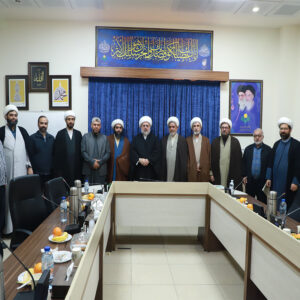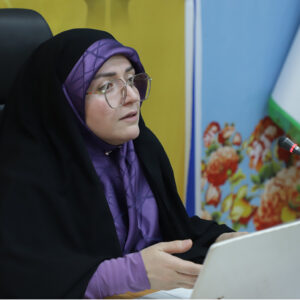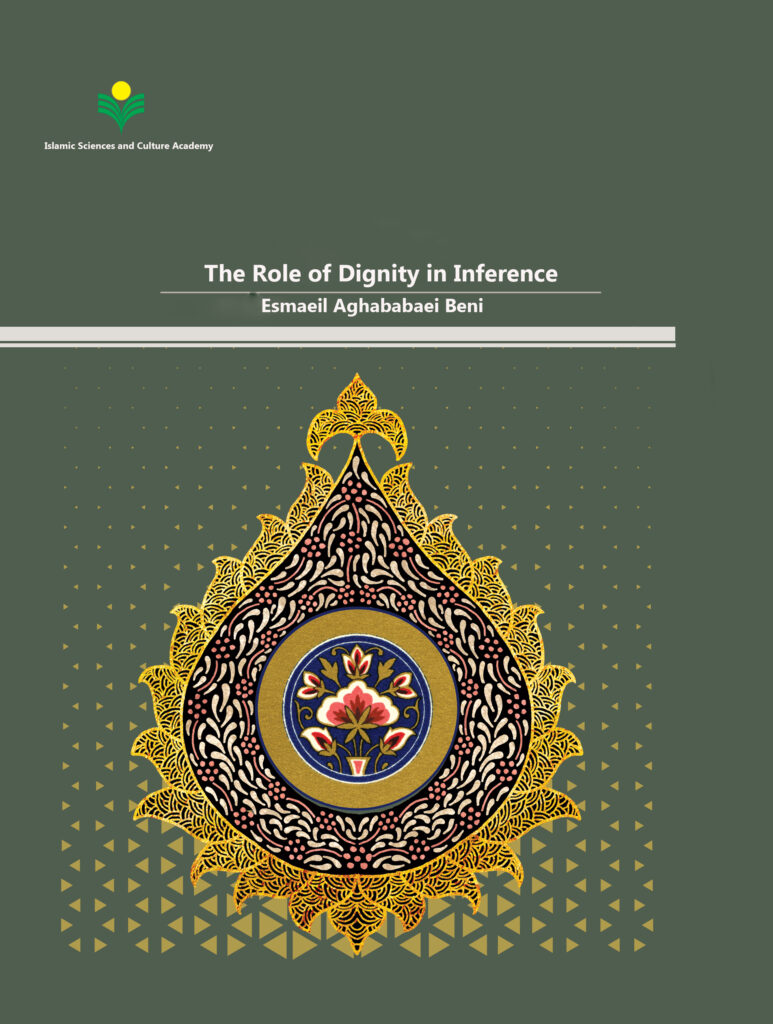The Role of Dignity in Inference (a Collection of Meetings and Articles)
Esmaeil Aghababaei Bani[1]
Keywords
Human dignity, inference of Sharia ruling, human rights, inherent dignity, acquired dignity.
Statement of the Problem
According to verse 90 of the holy Surah Isra’ – Certainly we have honored the children of Adam – the dignity of human beings has raised various topics in the sciences of theology, interpretation and jurisprudence, and today, with the discussion of human rights, other angles of these topics are dealt with in the scientific community. Some rulings of jurisprudence such as slavery in Islam, payment of jizya, rights of non-Muslim citizens, slandering heretics, etc. are in conflict with human dignity, despite being proposed in jurisprudence, according to some viewpoints and the need to accept human dignity as a jurisprudential principle leads to the revision of such rulings. However, some other views, looking at real expediency and sometimes unattainable from a human point of view, are trying to prove the compatibility of these rulings with dignity. Therefore, the question arises, what effect will the acceptance of human dignity have on inference of jurisprudential rulings for arguments? The answer to this question justifies the necessity and importance of this article due to the problems and challenges that are raised about dignity with respect to human rights in today’s society.
Research Questions
The primary question is, what is the place of human dignity in the inference of Sharia rulings?
Since the accurate and practical answer to the above question depends on identifying the subject, the doubts raised and finally the use of dignity in inference of Sharia rulings, the secondary questions need to be examined in the form of the following areas:
- Subjectology (subject studies) includes questions such as 1. What does dignity mean in theological, jurisprudential and legal terms and what scope does it have? 2. What is the meaning of inherent or acquired dignity and which view is preferred?
- Sources and documents of human dignity including questions such as 1. What are the Quranic and narrative documents of human dignity? 2. How is human dignity designed in international documents and local regulations? 3. What is the background of paying attention to dignity and considering it effective in jurisprudence?
- The effects of identifying human dignity include questions such as 1. How can the doubts raised about the incompatibility of dignity with some rulings inferred from Sharia be answered? 2. What role does human dignity play in accepting or rejecting hadith? 3. What role does human dignity play to support evidence? 4. To what extent is it effective to pay attention to human dignity in solving the conflict of arguments? 5. Can human dignity be used as an independent rational reason in inference?
However, in the present book, the questions mentioned in the first and second areas have a preliminary aspect, they are briefly raised to the extent of choosing the basis for the topic, and the focus of the topics is on the third area.
Objectives
- Identifying the issue of dignity in jurisprudence and law literature and the related issues; 2. Analyzing the level of attention paid to human dignity in inference of Shariah rulings among past and present jurists; 3. Examining the possibility of issuing a fatwa according to human dignity; 4. Presenting a theory and solution in the manner and extent of the involvement of theological principles related to human dignity in inference.
Method
Due to various available resources on human dignity, the newness of some topics and the lack of jurisprudential background worthy of attention and the many differences of jurisprudential views in this regard, this research has been carried out in the form of several scientific meetings and in the form of discussion and criticism.
Structure
This study is organized in the form of four scientific meetings and two articles with the following titles:
First meeting: Principles and background of human dignity.
Second meeting: Inherent dignity and its application in jurisprudence.
Third meeting: Explanation of the jurisprudential status of human dignity.
Fourth meeting: Dignity and human rights.
First article: An examination of the place of the principle of human dignity in inference of rulings.
Second article: Principles and criteria of the effect of human dignity in inference of Sharia rulings.
Novelty
Transforming individual theoretical discussions into discussion sessions and trying to solve novel problems according to the principle of dignity is the most important novelty of this research, and it can be said that the difference of views of the presenting professors and criticism of the views by some other professors and those present at the meeting, has paved the way to achieve the scientific needs in answering the problems.
Results
- In jurisprudence, there are cases that seem to be in conflict with the principle of human dignity.
- It is possible to extract a principle called dignity from the verses and narratives and consider limitations and conditions for its application.
- The difference between human and other creatures, the relationship between religion and human, the way of calling the Prophet to achieve his goals, the characteristics of human in the call of the Holy Prophet, and the philosophy of establishing laws and social order are the criteria that should be considered in explaining the principle of dignity.
- Dignity can be proposed in two areas, the role and place of dignity in jurisprudence and legislation. In jurisprudence, some areas of dignity are acceptable and others are unacceptable.
- In the area of human rights, dignity has two aspects: one is a philosophical aspect and the other is the aspect of human rights documents, which have not been properly and completely planned in both aspects.
- Regarding dignity, some jurisprudence rulings can be criticized and based on this, some jurists have turned to views in favor of human dignity.
[1] . Associate Professor, Faculty Member, Islamic Sciences and Culture Academy (Aghababaei@isca.ac.ir).







